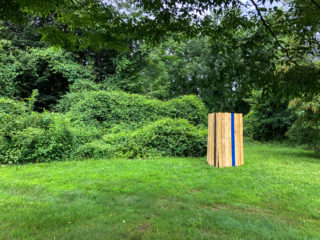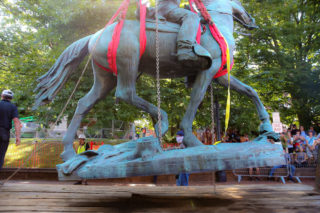
In a bizarre turn of events, fast-fashion giant H&M confirms that they have dropped a lawsuit against artist Jason “REVOK” Williams. After the company violated the artist’s copyright by including his work in their Spring “New Routine” campaign without permission, the artist sent a Cease & Desist letter, and in response H&M sued, arguing that because REVOK’s work was “unauthorized,” it “constituted vandalism” and thus, no royalties to the artist were due.
As we’ve seen in copyright cases before, just because a work was created illegally doesn’t mean the artist gives up his or her copyright. This was an unusual case though, because instead of responding to REVOK’s Cease & Desist, H&M sued the artist outright, claiming he had no rights to what’s now a fairly well-known work. The street art world responded in-kind, with a global #BoycottH&M campaign that quickly forced the retailer to reconsider its position.
“There are many things that are copyrightable, but illegal,” deputy director of Columbia Law School’s Kernochan Center for Law, Media and the Arts Philippa Loengard told The Mercury News. “Copyright is not a legal or illegal sanction of the activity that was done to produce the work. Copyright is a separate entity.”
There was some back and forth over whether H&M had actually dropped the suit: The company made a big public show over dropping it on March 15, but then REVOK’s lawyers told Hypebeast, actually no the case hadn’t been dropped. Today the case was finally dropped for good, and all references to the offending advertising campaign have been removed from H&M’s website and social channels.
UPDATE: On September 5, 2018, Revok and H&M announced that the two had reached an agreement and that both would be making contributions to a number of arts organizations in Detroit. It’s unclear if the new settlement comes from this lawsuit or if it’s a more informal agreement. It’s also unclear how much money is involved and who exactly will be paying it.




